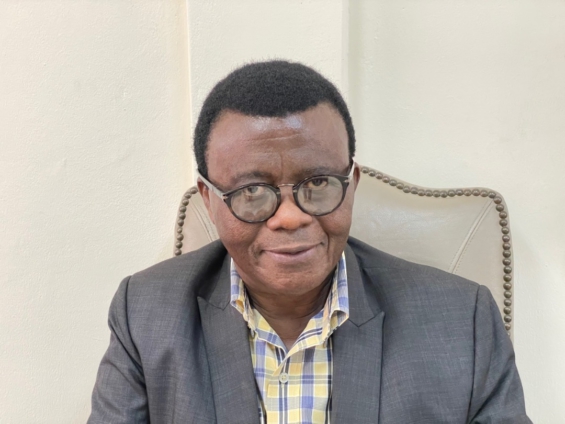Former UN Senior Governance Advisor Prof Baffour Agyemang-Duah has expressed shock that the government believed it could dismiss the concerns of organised labour.
He stated that underestimating the strength of the "sleeping giant in organised labour" was surprising, especially given the significant implications of tampering with the Social Security and National Insurance Trust (SSNIT) fund, which safeguards workers' futures.
“If organised labour wants to paralyse the whole country, they are in a position to do so. That was why I was surprised when they were defending that was undefendable and dragging their feet," he said. on Joy News PM Express on Monday.
Read Also: Organised Labour declares strike over NPRA’s approval for sale of SSNIT hotels
"SSNIT represents the future of all workers in the country because, by law, you are supposed to keep part of their salaries hoping that upon retirement, they may get some cushion to lay their head.
"So, if someone is playing with that kind of future, you can understand why workers will rise in unison to oppose it."
Prof. Agyemang-Duah also commented on SSNIT's plan to sell 60% of its stake in four hotels, either indicating that SSNIT did not present its case well or that there was a serious conflict of interest.
On Monday, July 15, organised labour suspended its strike, which began in protest against SSNIT's plan to sell 60% shares in four hotels to a private firm owned by the Food and Agriculture Minister, Bryan Acheampong.
Read more: Organised labour suspends strike; gives SSNIT one month to address concerns
This decision was announced by the Secretary General of the Trades Union Congress (TUC), Dr. Yaw Baah, at a news conference after an emergency meeting.
He said they are giving SSNIT one month to address all outstanding issues about pensions or "they will advise themselves."
Describing the breakdown in the relationship between organised labour and SSNIT as “bad news,” Prof. Agyemang-Duah said the Trust should not be seen defending a public official in the middle of wanting to buy state assets.
The head of the Kufuor Foundation noted that the government should have paid attention when organized labour began protesting the sale.
“In the 70s, labour paralyzed the military regime of the time. Between 1975 to 1977, there were lots of labour agitations, leading to internal changes within the government itself.
“Since then, we know that whenever labour begins to rumble over these matters, the government begins to have no options but to capitulate.
"Perhaps, lessons must be learnt from the Kenya peaceful demonstration which rolled into something else and forced the government to swallow its own bill and go beyond that to quickly drop the cabinet," he said.
Latest Stories
-
Gold Board initiative yields $3 billion economic boost in 4 months – Kwakye Ofosu reveals
2 hours -
Kwakye Ofosu reveals money saved from paid TV ban at Jubilee House
3 hours -
14 Years of production: Ghanaians see oil as neither blessing nor curse — Research
3 hours -
Judge orders Columbia student Mahmoud Khalil released on bail
4 hours -
Dr. Peter Terkper declares GNAFF Presidency bid with bold vision
5 hours -
Teenage pregnancy declines in Akatsi North as leaders call for sustained action
6 hours -
NIB, NACOC destroy $350m worth of cocaine following court order
6 hours -
Keta-Akatsi Catholic Diocese honours health workers at 33rd World Day of the Sick
6 hours -
Suspect arrested for burglary and theft at Kasoa Nyayano
6 hours -
US resumes visas for foreign students but demands access to social media accounts
6 hours -
Indian High Commission collaborates with VRCC and UHAS to champion physical, mental wellness in Volta Region
7 hours -
This Saturday on Newsfile: Galamsey fury, NPP early primaries and effects of Israel-Iran war
8 hours -
African Heads of States, Caribbean and Global Business Leaders to gather in Abuja Nigeria for 32nd Afreximbank annual meetings
8 hours -
GES, Brilliant Educational Consult train teachers in Kumasi to boost their competencies
8 hours -
DIPPER Lab launches IoT Training Programme to equip students with practical tech skills
8 hours

